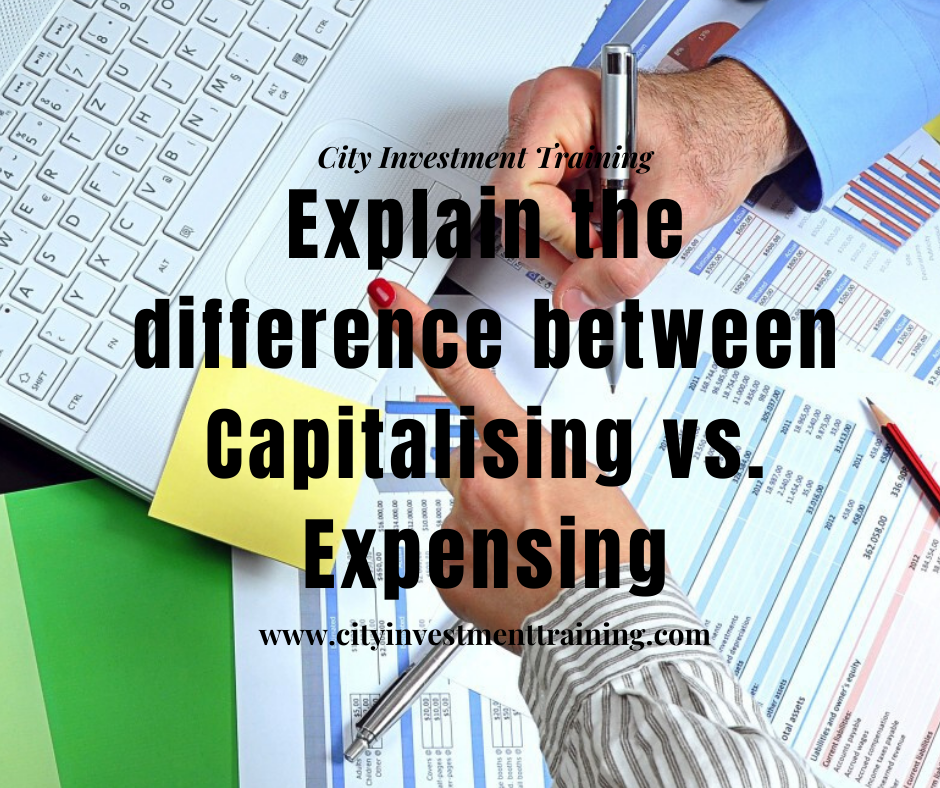Explain the difference between Capitalising vs. Expensing
- City Investment Training
- Apr 9, 2022
- 2 min read
All the students who took our 8 weeks training program, 90% of them found internships and jobs. Please click here https://www.cityinvestmenttraining.com/ to learn more.
Check our popular ebook "Top 100 Investment Banking Questions with Answers".
Click here to get your copy: https://www.cityinvestmenttraining.com/blog

Explain the difference between Capitalising vs. Expensing
Capitalising is when the company creates a fixed asset for the expense incurred on the balance sheet and records a proportion of those assets as an expense such as depreciation or amortisation on the IS over time. If the expense incurred by the company offers a potential benefit over a year and can be clearly quantified, then accounting regulators allow those costs to be capitalised.
However, if expenses do not provide future benefits or cannot be clearly quantified then a company will need to book the entire expense on its income statement in one go in the period it was incurred. There had been some debate previously on whether advertising expenses should be treated as assets as they clearly provide future benefits. However, given its unquantifiable nature, companies need to book advertising expenses all in one go in the period incurred.
Despite the onset of Covid-19 and its accompanying challenges, our program registered a 90% placement rate for students on our 8 weeks training programs. Our students secure jobs at marquee investment banks such as Goldman Sachs, Credit Suisse, Morgan Stanley, Citi Bank and Deutsche Bank among others. Please send your CV to info@cityinvestmenttraining.com to check your eligibility for the course.

Get your copy of our "Top 100 Investment Banking Questions with Answers".Please click this link to get a copy of our popular eBook

Visit this link to find out more about our programs: https://www.cityinvestmenttraining.com/programs







Comments